Inside the the murky world of alligator hunting
KEY POINTS
- Charlie LeDoux is the Louisiana Alligator Man at war with PETA.
- Alligator hunting is big business in the United States of America.
- Charlie spoke to IBTimes UK about chasing 'gators in the wetlands.
Animal rights groups don't much like the Louisiana Alligator Man. And he don't like them either.
Charlie LeDoux owns 5,000 acres of wetlands not far north of the Mexican Gulf, where he has the right to chase and kill the deadly reptiles. Welcome to the murky world of alligator hunting.
For $2,000 (£1,500), Charlie will take you out on his boat so you can shoot an alligator in the head, then he'll skin it and send the hide off to a taxidermist before putting the meat into an ice box for you.
There are roughly five million wild alligators in the southeastern US and two fifths of those are in Louisiana.
They can only be hunted on private land during September, and even then in small quotas: Charlie gets 31 tags from the State – one per animal.
"Most people come because they're looking for big mean man-eaters – everybody wants to take out one of the big ones and save somebody's life," says Charlie, who's rustling up some alligator jerky while he speaks to IBTimes UK on the phone.
"But alligators don't go around eating people – you have to jump on top of it to get it to eat you."
The 56-year-old wasn't born an Alligator Man – his father was a carpenter who never hunted – but Charlie fell in love with blood sports in his teens and never looked back. He set up his hunting business – Guided Ventures – 22 years ago. A business not without controversy.
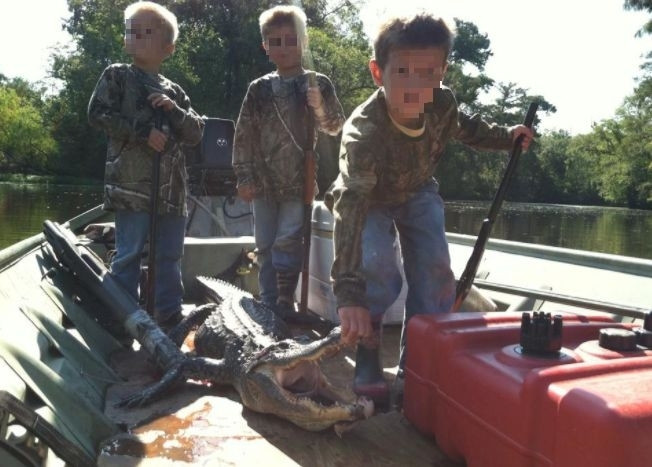
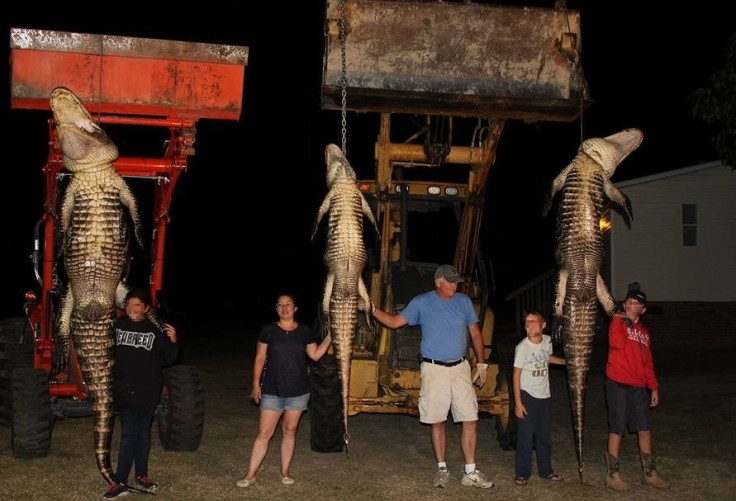
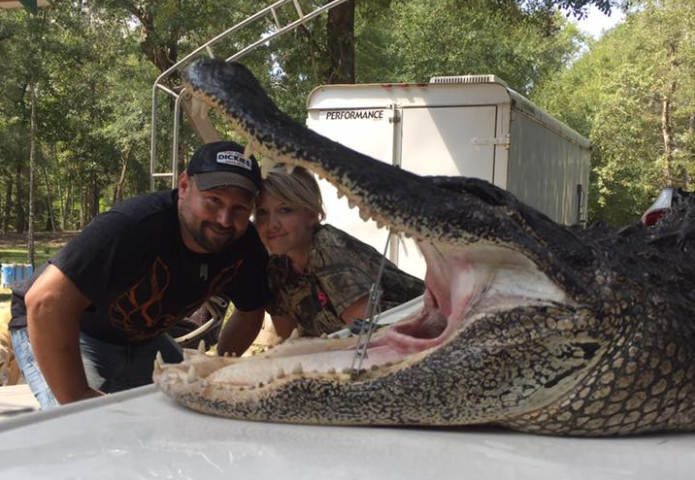
Animal rights campaigners PETA condemn all hunting. Commenting on the many photos and videos on Charlie's website, a spokesperson said: "Decent people understand that all animals – whether they have scales, feathers, or fur – should be left in peace."
Charlie, who's had plenty of run-ins with the group, replied: "In nature there's a pecking order. I'm top of the food chain. They [PETA] think they're bottom of the food chain and that's their luck. I'm the one that survives, they're the ones that die."
While the alligators' hides and meat rarely go to waste, Charlie admits "most customers come for the thrill of the chase, then decide what to do with it".
The controversy isn't going away. But then neither is Charlie's customer base. His guests kill around 20 alligators each season. State records from 2012 show that between 30,000 and 35,000 wild alligators were "harvested" by hunters that year, 3-3.5% of the two million in the wild.
Broadly speaking, the more land you have, the more 'gators you can kill: Charlie's 5,000 acres earn him 31 tags, which he can then transfer to guests, who don't even need hunting experience provided they're with him. And "hell yeah", kids are welcome too.
Charlie will be happy to provide customers with a .22 pistol – the best tool for the job in his opinion – though many like to bring their own weapons.
"Most people carry their own firearm because they want to see what it can do, thinking: 'If I kill a big gator with my pistol then I can keep intruders back [at home],'" he says.
Fans of the old school can even use a bow and arrow. Killing alligators is more about accuracy than firepower, according to Charlie, who says "one shot is all you need – right behind the eyes".
Most people want to kill the biggest 'gator they can – a trophy to show off in their homes. Occasionally though, people go after smaller animals, which have the softer hides preferred in boots. Alligator meat is versatile and can be pulled, barbecued or used to make gumbo – a stew popular in Louisiana.
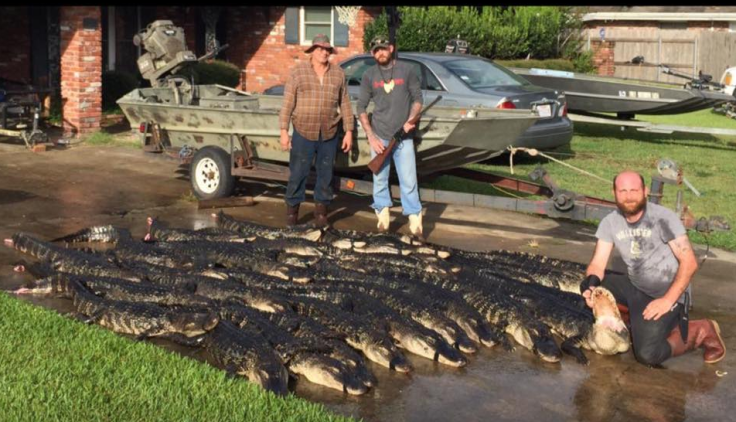
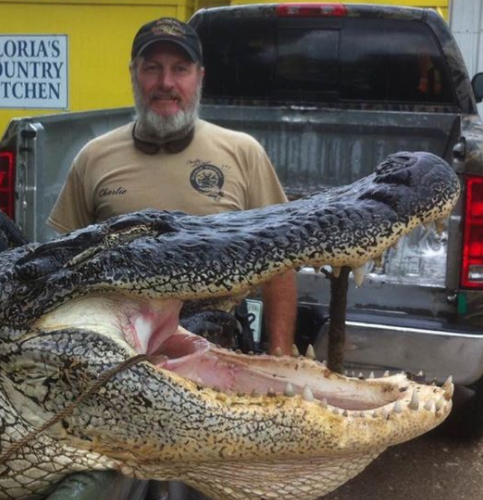
Similar month-long hunting seasons operate in Florida, Georgia, Alabama, Arkansas, Mississippi, South Carolina and Texas. North Carolina is the only US state where the alligator lives and cannot be killed for sport.
Thanks to these regulations, the US wild alligator population is at a stable and healthy five million. The strict rules were imposed in the 1970s after the animal was nearly driven to extinction by unregulated killings.
But these statistics bring little comfort to people who disagree with hunting, and pictures of young children standing next to strung-up alligator corpses are upsetting to many. PETA said: "Children deserve thoughtful role models who teach them respect for nature."
Whether it's to their credit or not, Charlie LeDoux and a good many Louisianans don't care what PETA have to say. The proud Cajun is more worried about the prehistoric beasts lurking in his swamps.
"The closest call was a 'gator biting the boat inches from someone's hand. It lifted the whole boat out of the water and almost flipped it over. I really wanted to keep it because of the teeth marks," he said, adding wistfully: "In the end I had to sell it."



















